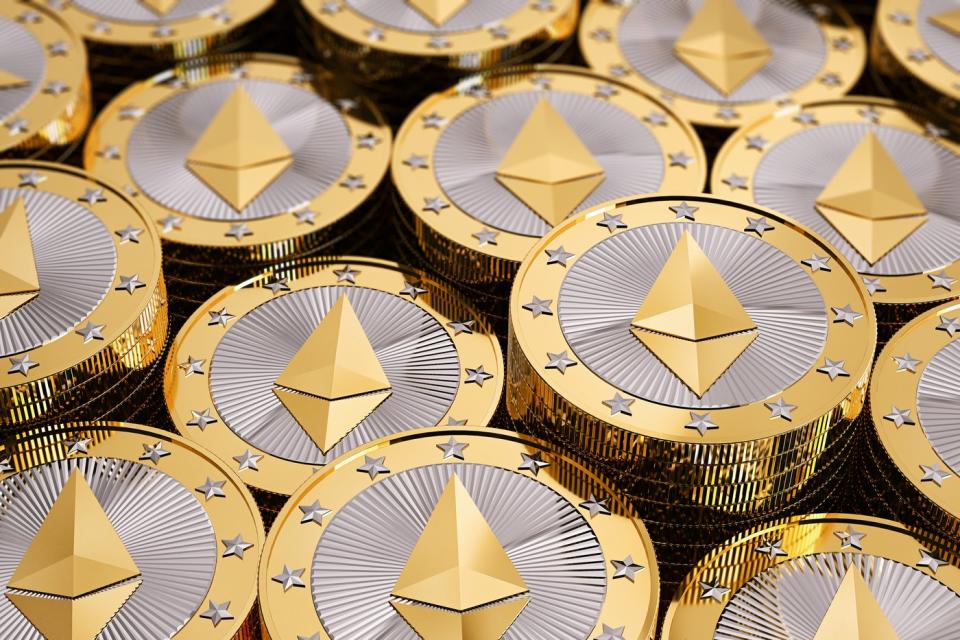What Is the Dencun Upgrade and How Is It Affecting Crypto Markets?
03/28/2024 20:27
Ethereum's Dencun upgrade represents a significant advancement in the blockchain's evolution.
Far from a finished product, Ethereum (CRYPTO: ETH) aims to one day become powerful enough to help all of humanity. To achieve this, Ethereum developers constantly unveil new upgrades that make it more functional and viable. The most prominent upgrade over the last few years was known as The Merge, which shifted the blockchain from a proof-of-work to a proof-of-stake consensus mechanism.
Sticking to their plan to make Ethereum the premier blockchain, developers launched the Dencun upgrade on March 13. A moniker combining the Deneb and Cancun upgrades, Dencun represents a significant advancement in the evolution of Ethereum. Designed to address multiple limitations, Dencun enhances security, scalability, and overall usability, marking a pivotal moment in Ethereum's journey toward solidifying itself as the home of decentralized finance (DeFi).
Unraveling Dencun
Making up the Dencun upgrade are a series of updates known as Ethereum Improvement Proposals, or EIPs. One of the key EIPs in Dencun is EIP-4788, which focuses on improving communication between Ethereum's consensus layer, where validators secure the network, and the execution layer, where transactions are processed. By strengthening the link between these layers, Ethereum becomes more resilient to potential attacks and vulnerabilities, bolstering its overall security.
Additionally, EIP-6780 introduces modifications to smart contract functionality that enhance their security. The changes are highly technical, but overall, they aim to mitigate the risk of exploitation by malicious actors. Hence, they will increase the trust and reliability of decentralized applications built on the Ethereum blockchain.
However, perhaps the most impactful change introduced by the Dencun upgrade is EIP-41844, which significantly reduces transaction fees for Layer 2 blockchains. Layer 2s such as Optimism, Arbitrum, and Polygon are critical for Ethereum's scalability efforts.
The benefits of Layer 2s are well known and part of Ethereum's future roadmap for development since they alleviate network congestion by processing transactions in bundles. In other words, they help the underlying Ethereum network process transactions faster and more efficiently.
Naturally, Layer 2 blockchains have become prominent solutions for developers and users looking to leverage Ethereum cost-effectively. However, even some Layer 2 fees remained costly compared to other blockchains. But all of this changes after the Dencun upgrade.
Dencun shifts the narrative in Ethereum's favor
The impact of Dencun is already becoming evident as fees across some of the most prominent Layer 2s have dropped substantially. On Optimism, fees fell to nearly $0.04, down significantly from the recent average of around $1.40. The average fee on Coinbase Global's Layer 2 solution, Base, plummeted to just $0.03 from roughly $1.50. Leading the way is Arbitrum, which has seen fees fall to just fractions of a penny.
Lowered fees have led to increased activity on Layer 2 networks, the most apparent beneficiaries. For the first time ever, the total number of weekly active addresses on Ethereum surpassed 4.6 million. As it currently stands, Base seems to have witnessed the greatest influx, nearly doubling its active users in just a month to more than 2 million.
The surge in activity on Layer 2s is likely just a sign of things to come and marks a potential shift in the crypto landscape. Ethereum's advent of smart contracts in 2015 gave it a head start compared to other blockchains, but its slower speeds and high fees opened the door for competitors such as Solana and Avalanche, which offered better scalability.
However, Dencun could threaten this group of blockchains known as "Ethereum killers." The lowered fee on Ethereum's Layer 2 networks makes them not only cheaper to use but also allows users and developers to benefit from Ethereum's robust decentralization and security. In other words, Ethereum has leveled the playing field and could solidify itself as the premier blockchain for DeFi application development.
Should you invest $1,000 in Ethereum right now?
Before you buy stock in Ethereum, consider this:
The Motley Fool Stock Advisor analyst team just identified what they believe are the 10 best stocks for investors to buy now… and Ethereum wasn’t one of them. The 10 stocks that made the cut could produce monster returns in the coming years.
Stock Advisor provides investors with an easy-to-follow blueprint for success, including guidance on building a portfolio, regular updates from analysts, and two new stock picks each month. The Stock Advisor service has more than tripled the return of S&P 500 since 2002*.
*Stock Advisor returns as of March 25, 2024
RJ Fulton has positions in Coinbase Global, Ethereum, Polygon, and Solana. The Motley Fool has positions in and recommends Avalanche, Coinbase Global, Ethereum, Polygon, and Solana. The Motley Fool has a disclosure policy.
What Is the Dencun Upgrade and How Is It Affecting Crypto Markets? was originally published by The Motley Fool
